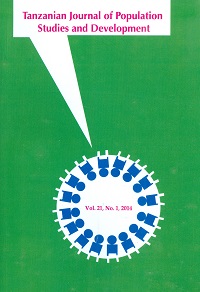International Labour Out-Migration In Mzimba District, Malawi: Why Persistent?
Abstract
This article is based on a study that sought to examine the socio-economic impacts of labour migration on families in Mzimba district in terms of education, health, labour supply, intra-family roles, norms, decision-making, and others. Eight villages with the highest number of out-migrants out of 27 in the district were studied. Fifty respondents of households with a migrant member were randomly selected as a sample for the study. Another random sample of 20 respondents from households without-migrants was selected to serve as a control group. The field data were obtained using in-depth interviews, observations, and focus group discussions. Secondary data were obtained mainly through library research. The study reveals that, overall, households with migrant relatives in South Africa have experienced a change in their welfare; ranging from positive change in socio-economic conditions and/or positive change in their social and family relations. Negative consequences included loneliness, especially for spouse left at home; psycho-social problems, especially for children due to the absence of fathers; and low esteem that females feel when their husbands are absent to the extent of not being involved fully in family matters. On the part of the migrants themselves, they live in untenable working conditions, often illegally, and in most circumstances very unwelcome in the host country.
Keywords: international labour migration, migrants, remittances, household dynamics


